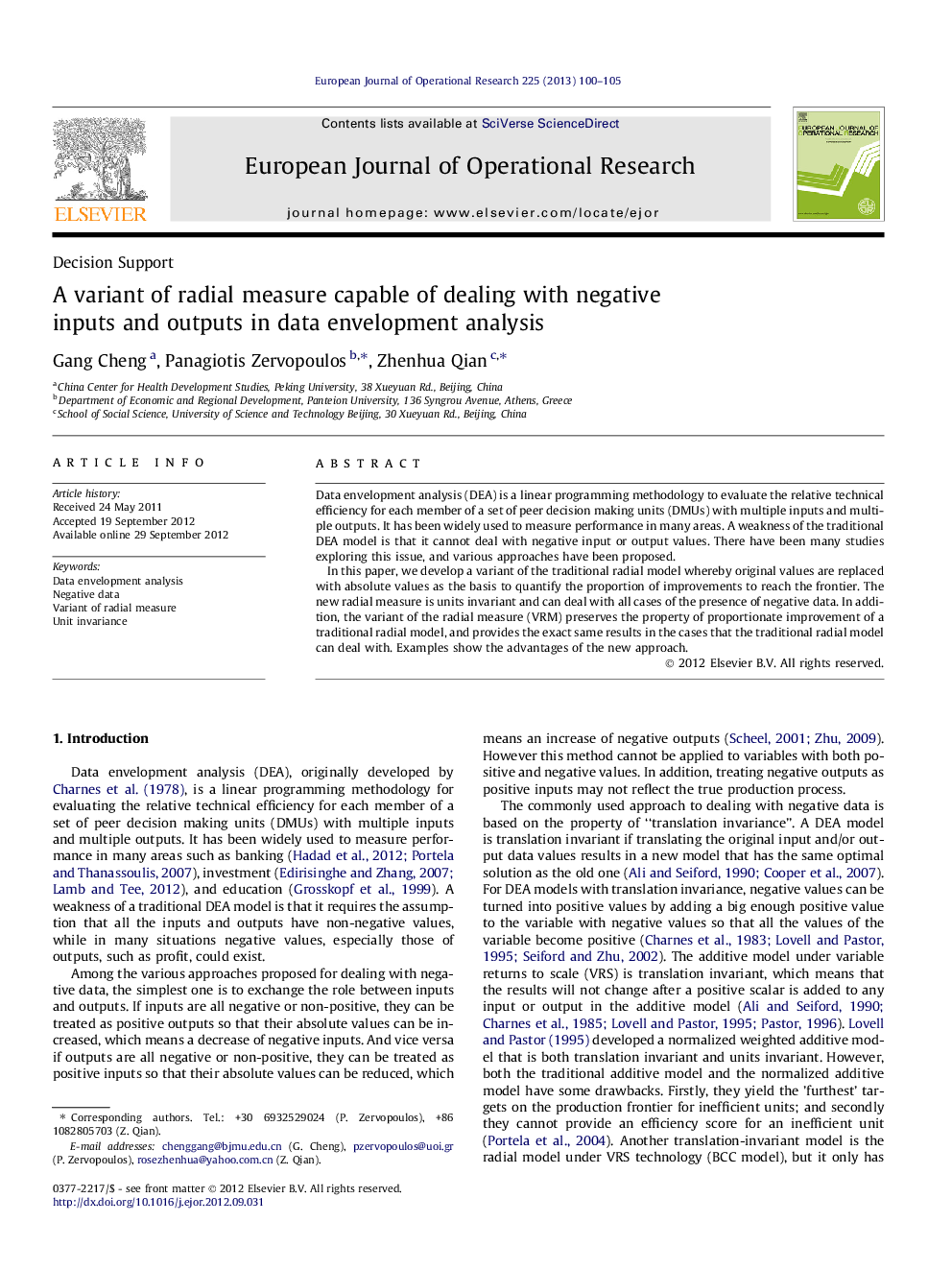| Article ID | Journal | Published Year | Pages | File Type |
|---|---|---|---|---|
| 480029 | European Journal of Operational Research | 2013 | 6 Pages |
Data envelopment analysis (DEA) is a linear programming methodology to evaluate the relative technical efficiency for each member of a set of peer decision making units (DMUs) with multiple inputs and multiple outputs. It has been widely used to measure performance in many areas. A weakness of the traditional DEA model is that it cannot deal with negative input or output values. There have been many studies exploring this issue, and various approaches have been proposed.In this paper, we develop a variant of the traditional radial model whereby original values are replaced with absolute values as the basis to quantify the proportion of improvements to reach the frontier. The new radial measure is units invariant and can deal with all cases of the presence of negative data. In addition, the variant of the radial measure (VRM) preserves the property of proportionate improvement of a traditional radial model, and provides the exact same results in the cases that the traditional radial model can deal with. Examples show the advantages of the new approach.
► We develop a variant of the traditional radial model (VRM). ► In the VRM original values are replaced with absolute ones. ► The VRM is applicable when fully-dominated datasets by negative values appear. ► The VRM never leads to worse target values than the original ones. ► The results of other negative data handling models for DEA are discussed.
